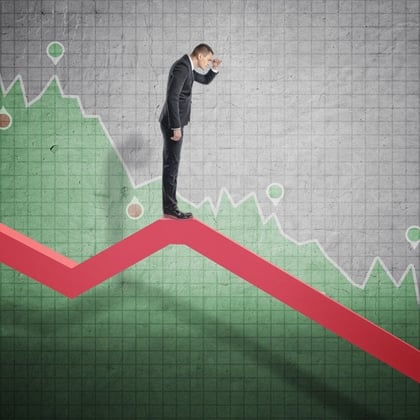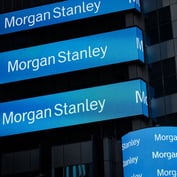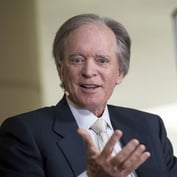A renewed bout of volatility rattled markets around the world as SVB Financial Group’s turmoil spurred concern about the next shoe to drop at a time when the Federal Reserve is deploying its most-aggressive tightening campaign in a generation.
Not even remarks from prominent voices that a systemic financial crisis is unlikely was able to appease investors. Equities sold off, with the S&P 500 coming close to wiping out its 2023 gains.
Traders rushed in droves to the safety of bonds, which also soared after jobs figures offered a glimmer of hope that the Fed may refrain from accelerating its pace of rate hikes.
As risk assets got pummeled, the US stock benchmark suffered its worst week since September. Wall Street’s so-called “fear gauge” spiked, with the Cboe Volatility Index hitting 29 at one point. Bitcoin broke below $20,000. Treasury two-year yields plummeted 29 basis points to 4.58%.
The trigger for further de-risking was the official news that Silicon Valley Bank became the biggest U.S. financial failure in more than a decade, after its long-established customer base of tech startups grew worried and yanked deposits.
It’s the second regional lender to fold this week after Silvergate Capital Corp. announced it was voluntarily liquidating its bank.
Anxiety is also running high ahead of next week’s consumer price index report, especially after Fed Chair Jerome Powell recently emphasized that a move to a faster pace of tightening would be based on the “totality of the data.”
“We are just beginning to feel the effects of quantitative tightening on markets and the economy,” said Peter van Dooijeweert at Man Solutions. “As such, the market seems to be reverting to a 25 basis-point hike next meeting after almost being certain of 50 basis points only a few days ago. The worst-case scenario ahead would be a high CPI next week forcing the Fed’s hand despite hints of financial stability issues.”
Swap traders now see a 25-basis point hike at the March policy meeting as more likely than half-point move. They also lowered expectations for how high the Fed will push the borrowing costs — once again fully pricing in a rate cut from the peak level by year-end.
The rate hikes of the past year were not a prelude to a steady Goldilocks economy that’s running neither too hot nor too cold, but instead to a “hard landing and credit events,” strategists led by Michael Hartnett wrote in a note on fund flows pointing to another risk-off week in markets.
Investors pulled $500 million from equity funds and piled $18.1 billion into cash and $8.2 billion into bonds, according to BofA citing EPFR Global data for the period through March 8.








 March 10, 2023 at 02:57 PM
March 10, 2023 at 02:57 PM












 Copyright © 2024 ALM Global, LLC. All Rights Reserved.
Copyright © 2024 ALM Global, LLC. All Rights Reserved.